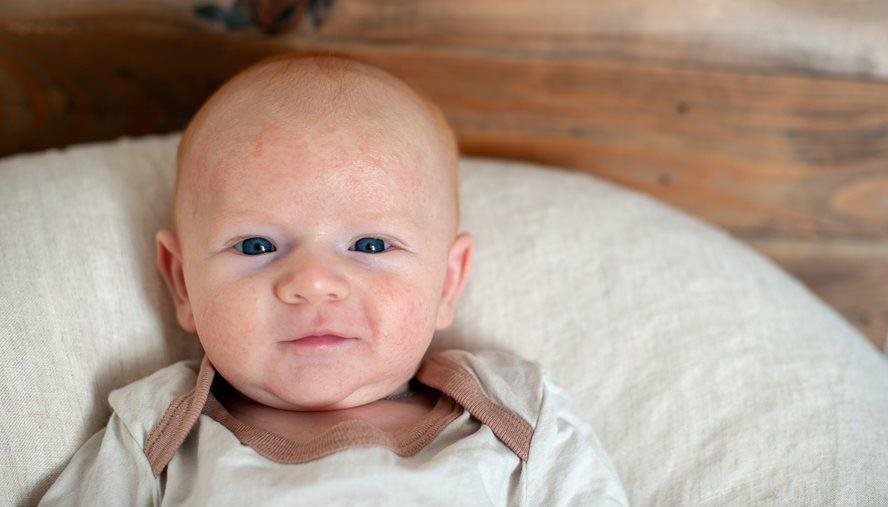Study Finds Babies Born in Colder Weather at Higher Risk for Allergic Diseases
Climate change and temperature differences may be leading to eczema, asthma and food allergies for newborns.
DENVER, CO —
Being born during colder weather seasons may put babies at higher risk for an allergic phenomenon known as the atopic march. The atopic march describes a progression of allergic diseases in children that begins with atopic dermatitis (eczema), food allergies, asthma and hay fever later in childhood. A previous study looking at National Jewish Health pediatric patients showed those born in the fall and winter were at higher risk for developing the atopic march. As a follow-up to this finding, National Jewish Health researchers exposed skin tissue to various temperatures and found lower temperatures led to a damaged skin barrier. The study was published recently in The Journal of Allergy and Clinical Immunology.

“By better understanding the environmental factors behind the atopic march we can work to develop interventions,” said Jessica Hui, MD, pediatric allergist at National Jewish Health and author of the study. “Our latest research describes the role that low temperature plays in damaging the skin barrier.”
Lower temperatures during fall and winter months lead to dry, itchy skin associated with eczema and allow harmful bacteria to thrive on newborns’ skin. Cracks on the skin’s surface then allow food particles and pathogens to penetrate the skin and enter the body.
“When food particles enter children’s bodies through the skin, the body recognizes the foreign particle as a threat,” said Dr. Hui. “When a child then eats the food, the body triggers an allergic reaction to fight off the supposed threat. In childhood allergies, reactions can vary from hives to itching, nausea or swollen airways.”
To study how temperature impacts the skin, researchers exposed skin cultures in the lab to average skin surface temperatures in the fall and winter to simulate the effects of cold weather on exposed skin. They discovered that lower temperatures inhibited the epidermal barrier proteins from functioning properly, leading to skin barrier dysfunction and allergens entering the body through the skin.
Researchers are now looking towards further studies that will determine if the drastic temperature changes seen during the fall season contribute to this phenomenon. With temperatures changing 30-40 degrees throughout the day in the fall, it’s possible that the dramatic temperature change increases the susceptibility of the skin barrier to damage.
“We suspect that increasing daily and seasonal temperature fluctuations caused by climate change could be worsening the problem,” Dr. Hui said. “In our eczema clinic, we’re already working on hydrating children’s skin during colder weather and fostering a healthy skin barrier so that allergens cannot get through.”
National Jewish Health is the leading respiratory hospital in the nation delivering excellence in multispecialty care and world class research. Founded in 1899 as a nonprofit hospital, National Jewish Health today is the only facility in the world dedicated exclusively to groundbreaking medical research and treatment of children and adults with respiratory, cardiac, immune and related disorders. Patients and families come to National Jewish Health from around the world to receive cutting-edge, comprehensive, coordinated care. To learn more, visit njhealth.org or the media resources page.
Media Resources
We have many faculty members, from bench scientists to clinicians, who can speak on almost any aspect of respiratory, immune, cardiac and gastrointestinal disease as well as lung cancer and basic immunology.
Media Contacts
Our team is available to arrange interviews, discuss events and story ideas.
- Jessica Berry
303.398.1082 office
303.807.9491 mobile
berryj@njhealth.org - Adam Dormuth
303.398.1002 office
970.222.5034 mobile
dormutha@njhealth.org
